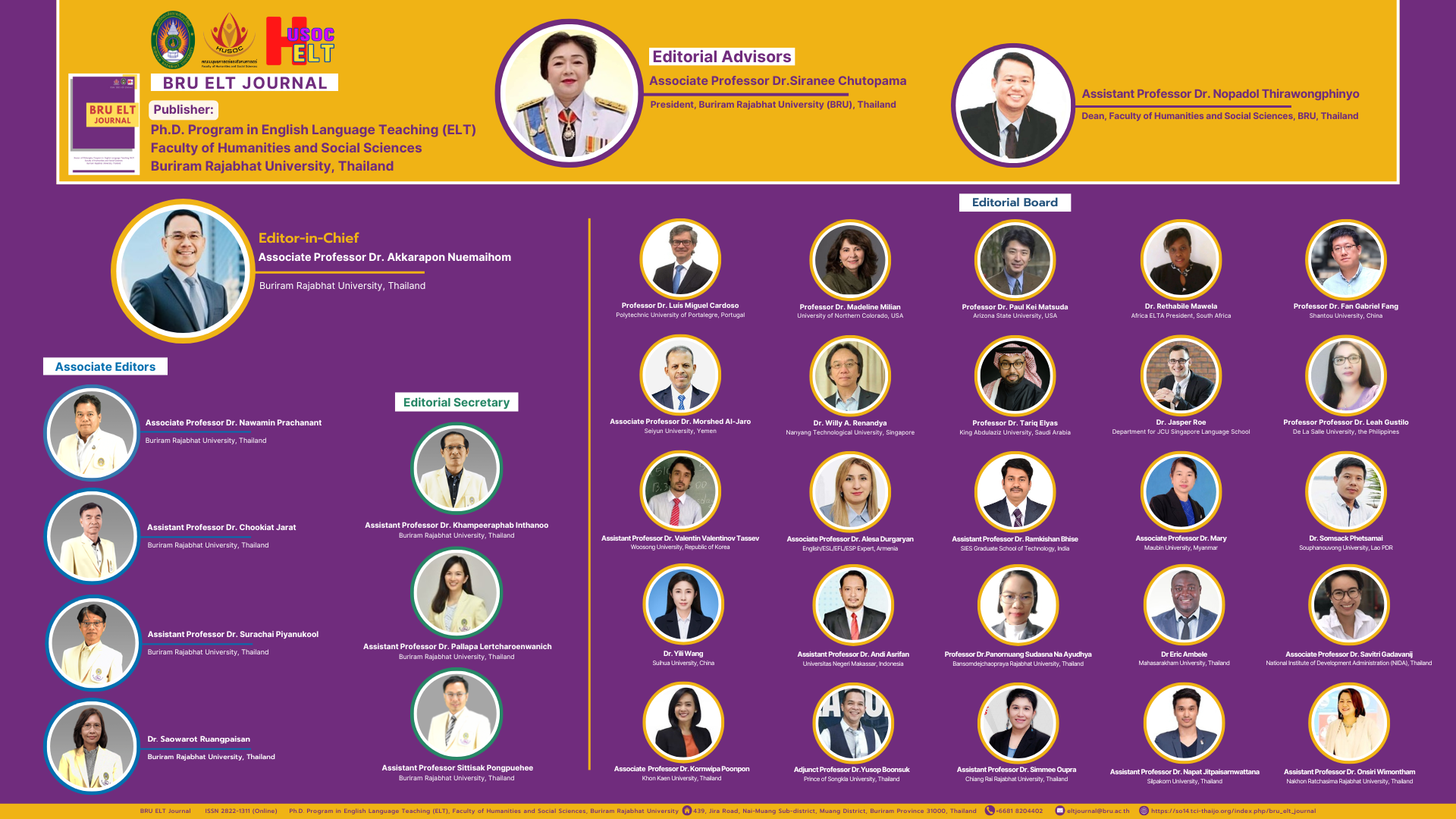Effectiveness of Constructivist and Behaviorist Approaches in Improving the Writing Skills of Grade 12 STEM Students with Writing Deficiency
DOI:
https://doi.org/10.14456/bej.2024.12Keywords:
behaviorist approach, constructivist approach, writing skillsAbstract
Writing is an essential skill for interpersonal communication that enables people to share ideas, persuade, and convince one another. However, students struggle to express their ideas in writing. This study aimed to investigate the effectiveness of Constructivist and Behaviorist approaches in improving the writing skills of Grade 12 STEM students who have writing deficiency. This study employed a quasi-experimental research design involving fifty (50) participants exposed to the constructivist approach, and the other fifty (50) were exposed to the behaviorist approach. They were chosen through total enumeration. The researcher administered a pretest and posttest through an argumentative essay. Results reveal that students exposed to both approaches progressed from the “Developing” level before the intervention to the “Proficient” level in all sub-skills, such as topic development, organization, vocabulary, sentence structure, and mechanics after the intervention. Furthermore, a significant improvement in the participants' writing skills was observed after the interventions. The constructivist and behaviorist approaches were both effective in improving the writing skills of the participants. However, the constructivist approach appeared to have better results than the behaviorist approach, especially on the sub-skill sentence structure. It is recommended that English teachers expose students to activities using a constructivist approach, such as active participation, peer review, and reflection practices.
References
Alsulami, S. Q. (2016). Toward a constructivist approach in Saudi education. English Language Teaching, 9(12), 104. https://doi.org/10.5539/elt.v9n12p104
Apridayani, A., Han, W., & Sakkanayok, K. (2024). Enhancing English writing competence in higher education: A comparative study of teacher-only assessment versus teacher and student self-assessment approaches. Asian-Pacific Journal of Second and Foreign Language Education, 9(1). https://doi.org/10.1186/s40862-024-00263-3
Araiba, S. (2019). Current diversification of behaviorism. Perspectives on behavior science, 43, 157-175. https://doi.org/10.1007/s40614-019-00207-0.
Ardiasih, L. S., Emzir, E., & Rasyid, Y. (2018). The practice of constructivist-based online learning for English argumentative essay writing: Learners’ perceptions. Proceedings of the Eleventh Conference on Applied Linguistics (CONAPLIN 2018). https://doi.org/10.2991/conaplin-18.2019.225
Arpentieva, Retnawati, H., Akhmetova, T., Azman, M., & Kassymova, G. (2021). Constructivist approach in pedagogical science. Challenges of Science. https://doi.org/10.31643/2021.02
Behbudi, S., & Sadeghoghli, H. (2018). The effect of topic interest on improving writing skill among pre-intermediate EFL learners. European Journal of Foreign Language Teaching. https://doi.org/10.46827/ejfl.v0i0.1649
Budiman, A. (2017). Behaviorism and foreign language teaching methodology. English Franca: Academic Journal of English Language and Education, 1(2), 101. https://doi.org/10.29240/ef.v1i2.171
Callinan, C. (2017). Developing essay writing skills: An evaluation of the modelling behaviour method and the influence of student self-efficacy. Journal of Further and Higher Education.
De Soto, J. A. (2022). The constructivism of social discourse: Toward a contemporaneous understanding of knowledge. Open Journal of Philosophy, 12(03), 376-396. https://doi.org/10.4236/ojpp.2022.123025
Graham, G. (2023). Behaviorism. Stanford Encyclopedia of Philosophy. https://plato.stanford.edu/entries/behaviorism/
Hall, B., & Wallace, E. (2015). Writing the conclusion. In CRC Press eBooks (pp. 152-159). https://doi.org/10.1201/b18756-22
Haigh, R. (2018). Sentence structure. Encyclopedia of Autism Spectrum Disorders. https://doi.org/10.1017/cbo9780511841613.025.
Işık, A. D. (2018). Use of technology in constructivist approach. Educational Research and Reviews, 13(21), 704-711. https://doi.org/10.5897/err2018.3609
Jancic, P., & Hus, V. (2019). Representation of teaching strategies based on constructivism in social studies. International Journal of Innovation and Learning. https://doi.org/10.1504/IJIL.2019.10016647.
Kempenaar, L., & Murray, R. (2017). Analysis of writing programmes for academics: Application of a transactional and systems approach. Studies in Higher Education, 43(12), 2371-2384. https://doi.org/10.1080/03075079.2017.1329817
Kessler, K. (2023, June 14). Writing mechanics: The secret to effective writing. Codeless. https://codeless.io/writing-mechanics/
Measey, J. (2021). Writing a paragraph. In CRC Press eBooks (pp. 55-62). https://doi.org/10.1201/9781003212560-11
Michaud, M. J. (2023). A writer reforms (the teaching of) writing: Donald Murray and the writing process movement, 1963-1987. The WAC Clearinghouse; University Press of Colorado. https://doi.org/10.37514/PER-B.2023.2043
Taufik, M., Yusuf, M. J., & Rijal, A. S. (2020). Constructivism learning in writing of literary works. English and Literature Journal/Elite English and Literature Journal, 7(1), 102. https://doi.org/10.24252/elite.v7i1a9
Zlatkova-Doncheva, K. (2020). Constructivism and behaviorism in teaching children with intellectual disabilities. Pedagogical Almanac. https://doi.org/10.54664/oebh9743






